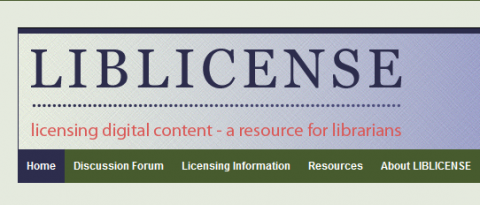Libraries today must be strongly proactive in shaping the licenses that govern their campuses’ electronic information resources. A multi-organizational effort is now underway to strengthen libraries' negotiating position in the e-resources marketplace.
In 1997, the LIBLICENSE project (then at Yale Library and since 2011 at the Center for Research Libraries) cleared a path for librarians by creating the LIBLICENSE Model License, license-creation software, and an online discussion group to explore the issues around licensing and scholarly communication. The Model License was last updated in 2008, and while the companion software has grown less functional as operating systems change, the discussion group remains lively and collegial, signaling the continuing importance of these issues.
Now, with support from The Andrew W. Mellon Foundation, a vigorous overhaul of the Model License is in progress under the auspices of the Center for Research Libraries. The license, which has been widely used and adapted by libraries and consortia in the United States, presents a negotiating framework designed to help libraries identify and incorporate in their licenses terms that provide readers the widest possible access to their chosen information resources, while supporting the fair use provisions of the US Copyright Act.
CRL’s Advisor on Electronic Strategies, Ann Okerson, who has led the project since its inception, has formed a team of distinguished North American practitioners and experts, representing key institutional partners, who together began the rewrite effort in fall 2013. The group includes Ivy Anderson (California Digital Library); Julia Blixrud (Association of Research Libraries); Craig Olsvik (Canadian Research Knowledge Network); Tracy Thompson (New England Law Library Consortium); and Christa Williford (Council on Library and Information Resources). Lisa Macklin (Emory University) is the project’s legal advisor and specialist.
The group will make an initial draft version available for comment by late spring 2014, and will work actively to bring the discussion to colleagues across the academic community. By summer, the comments will be integrated and the new Model License released through the CRL website. The software that enables users to build their own agreements based on the Model License standard language will also be completely rewritten and released later in 2014. The software has proven invaluable to librarians involved in licensing, and has served as a practical training tool in library and information schools as well.
The development team is excited by the prospect of providing the library community with new tools and resources to enable colleagues in many institutions to better serve their user communities. CRL is indebted to The Mellon Foundation for its support of this project.
